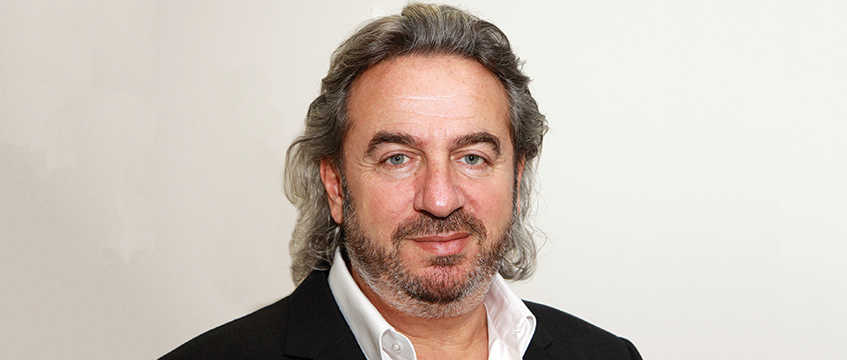THE LEHMAN CHRONICLES: In the first of a series of recollections from the industry’s most influential players looking back at the collapse of Lehman Brothers and the lessons that can be learnt from it, Prestbury Investments chairman Nick Leslau wears his heart on his sleeve, revealing how the crisis shaped him and his business.
Looking back
Did you sense there was a crash coming?
 Yes, but unfortunately not on the scale that actually happened. In anticipation, some time before the crash we switched the vast majority of our portfolio from conventional real estate into very defensive, long-term income streams, which weathered the storms beautifully, and much of which we still own today. Cash would have been the best investment though.
Yes, but unfortunately not on the scale that actually happened. In anticipation, some time before the crash we switched the vast majority of our portfolio from conventional real estate into very defensive, long-term income streams, which weathered the storms beautifully, and much of which we still own today. Cash would have been the best investment though.
What are your abiding memories of the time around the collapse of Lehman itself?
We were lucky enough to have substantial cash deposits when the waves came crashing down. However, I recall the Monday after the infamous Northern Rock weekend trying to get Bank of Scotland to answer the phone so we could transfer a lot of cash over to HSBC as we thought the bank was going bust.
It was huge for me and till this day and forever I will not forget the importance of integrity and honesty irrespective of how others around you behave.
Bank of Scotland did not respond for hours to our calls and then HSBC refused to take any more deposits as they had too much cash. The real threat of no cash coming out of ATMs made me realise in utter fear that if the banks went down we were all wiped out irrespective of how much cash we had in them.
My real awakening was that our deposits were loans to the banks and they could have disappeared overnight. It still gives me goose bumps.
I have learned that cash needs to be spread widely and that the covenants in a loan are way more important than the level of gearing. It doesn’t matter if you are only 30% geared, if the loan is breached if values drop 1%. Its ALL about the covenant headroom or you lose control of your destiny!
How has it shaped things for you since?
I learnt so much about so many things through the financial crisis. What does a relationship really mean? You only find the true strength of people and organisations when you are going over the metaphorical trenches together. Sadly, a few proved themselves poor in that role.
When we floated Max Property Group in 2009 – which was the biggest IPO in Europe that year – raising blind cash, I realised what earning a reputation over a long time really meant.
The 2008 financial tsunami was different because many did anticipate it and yet were powerless to do much about it. The profound ramifications were what took us all by surprise as none of us had ever seen anything like it.
I don’t mean this pompously, but the fact that so many placed their faith by investing in my colleagues and myself when things were at their lowest ebb, possibly in living memory, made me realise the huge responsibility one has when investing other people’s money.
We had always tried over many years to do our very best by investors but the financial crisis and being so solidly backed when others couldn’t raise any money at all made me realise, even more acutely than ever, the gargantuan responsibility that comes with investing other people’s money.
It was huge for me and till this day and forever I will not forget the importance of integrity and honesty irrespective of how others around you behave. The financial crisis brought the very worst and sometimes the best in so many people.
Looking forward
What do you think is the likelihood of another crash in the short to medium term (and why)?
I think a crash is unlikely. A year before the Lehman’s crash I wrote in my column that I seriously feared for the markets because the slicing and dicing of so many varieties of debt had become totally unfathomable and borrowing was out of control.
All things being equal, markets don’t crash if there is no debt to act as a catalyst to make that happen. Markets go up and down but if you have no debt you can’t go bust. The property market today both with conventional and unconventional debt is much lower leveraged reducing the likelihood of a sudden correction.
However, I do think in many sectors there appear to be rather a lot of Emperors Clothes. It is my view that the air is slowly but surely coming out of the tyres and this will not stop for some time as the markets gently find their value equilibrium. A few Asians and forced buyers will hold the strings of the qualifying property for a while still, but one has to question for how much longer.
What things should investors look out for that might signal another crash?
Crashes usually hit us from left field when we least expect them. The 2008 financial tsunami was different because many did anticipate it and yet were powerless to do much about it. The profound ramifications were what took us all by surprise as none of us had ever seen anything like it.
My fears for property are not, unlike many of my peer group, around Brexit. My nightmare scenario is a forced early election and a Jeremy Corbyn/Momentum-led government.
While the impact of AI may be considered to be relatively slow, I think history will prove we are in the very early days of a technological revolution
The consequences of this in relation not just to property but almost every avenue of commercial life are difficult to quantify. Financial illiteracy combined with a ruthless Marxist ideology will set this country back decades. When that becomes a political likelihood, watch values tank.
I am also fearful of the end of quantitive easing and the impact on interest rates. I don’t think property is nearly as vulnerable as consumer spending, where household debt is potentially very vulnerable to a sudden hike as are house prices.
However, the consequences of this happen are likely to affect all property prices. I do, however, believe central banks are very live to this challenge. Certainly, we need another half generation for bankers to forget what happened last time around. We have time.
What sector or geography do you think looks most susceptible to a downturn?
Any sector which is people intense and is being invaded by new technologies, which is pretty well most of them. While the impact of AI may be considered to be relatively slow, I think history will prove we are in the very early days of a technological revolution which is gathering pace and real estate needs to be very well selected to deal with the rapid rate of change.
We will simply need much less of it than we use now and what we do use will be used differently. This will take decades though.
For me, its not so much about which sector is particularly susceptible, it’s about the price you have to pay to get into it today. Prices feel very, very high and don’t, in my view, reflect the real risks or property ownership.
We have had an extraordinary bull market for so long (except of course in retail) where the concept of “sweating” assets today is replacing one tenant with another at a higher rent. Many owners today have no idea what it is like to have to seriously compete in a dreadful market place and are happy to pay yields which assume today is the forever status quo. It is not.











